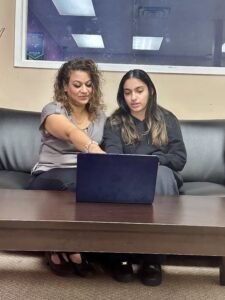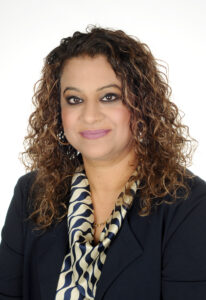The birth of a child is typically the most joyous and fulfilling experience of any parent’s life. They look at their baby’s face and ponder when they will pass through their key milestones and anticipate the celebration of their talents and achievements. They have hopes and dreams of their child’s future. The baby appears to look normal at birth until about 12-18 months of age. A parent’s initial hopes and dreams can be altered when they start to see an atypical pattern of development. They start to question things like “Why is my baby not looking me when I talk to them?”, or “Why does my child not respond to his or her name?” or “Why is my child not babbling or talking yet at 12 months?” or “Why is my toddler walking on their toes?”
Autism Spectrum Disorder (ASD) or autism is one of this era’s most prevalent life-long childhood disorder from birth, with no known cause and no known cure. Every 20 minutes a child is being diagnosed with autism somewhere around the world. The Diagnostic and Statistical Manual of Mental Disorders(DSM-5-TR) describes autism as a complex neurodevelopmental disorder characterized by social impairments, communication difficulties, and restricted, repetitive and stereotyped patterns of behavior. It is considered the most prevalent childhood disorder in children at this time, even higher than childhood cancer, asthma or diabetes. Families have described this disorder as “the death of a typical child” because the baby appears normal until about 18 months of age when the symptoms begin to emerge. According to the Public Health Agency of Canada, an alarming 1 in 50 children between the ages of 1-17 years old are diagnosed with autism in Canada. With the influx of immigration to Canada, many South Asian families are now affected by autism, but the cultural barriers and only a handful of South Asian behaviour consultants can make it more difficult to navigate the system for diagnosis and support.
Dr. Ramen Saggu is a Board Certified Behaviour Analyst (BCBA) and holds PhD in Clinical Psychology. She has been working in the field of autism for about 28 years and has trained in the United States, England, and Canada. Currently, she is the CEO of Pacific ABA Academy, a provincially recognized treatment, counselling and diagnostic center for children aged 1-18 years of age with Autism Spectrum Disorder and related disabilities. Her selfless work and passion in the field of autism has led to many accolades and achievements.
As a South Asian woman herself married into a traditional Punjabi Sikh family, Dr. Saggu understands the culture and the barriers that can affect a family’s acceptance of a disorder of Autism. For families who are South Asian, she dedicates her time to helping families in her native tongue wanting to seek advice on the Autism Spectrum disorder. She particularly sees the emotional and financials struggles that the South Asian families face and the lack of education and awareness surrounding such a silent disorder. “South Asian families not born and raised in the Western countries have some  difficulties understanding ASD and the symptoms and often not understanding that they did not do anything wrong to have a child with autism.” She provides parents with the necessary education in Punjabi they need to understand how to raise a child with ASD and provides therapists who speak Punjabi or Hindi to work 1:1 with the child. “It is very important for the family to develop some unity when a child is diagnosed with Autism, rather than breaking down and isolating each other or blaming one another for a disorder that has a genetic background. Husband and wife need to be emotionally supportive and help each other throughout the grief cycle, and in-laws and extended relatives should be informed so they can help with the daily care of the child or relieve other household burdens such as housekeeping, cooking, and transportation to and from the clinics to assist the parents. I have often seen too much conflict within the family network which only affects the child and their potential progress.” Early detection and intervention are key and with the right amount of quality therapy these children can make significant gains. Our goal is to truly help our children “reach for the stars.” Dr. Saggu’s main goal for South Asian families is to gain awareness and acceptance of autism to make their journey easier as they raise this child.
difficulties understanding ASD and the symptoms and often not understanding that they did not do anything wrong to have a child with autism.” She provides parents with the necessary education in Punjabi they need to understand how to raise a child with ASD and provides therapists who speak Punjabi or Hindi to work 1:1 with the child. “It is very important for the family to develop some unity when a child is diagnosed with Autism, rather than breaking down and isolating each other or blaming one another for a disorder that has a genetic background. Husband and wife need to be emotionally supportive and help each other throughout the grief cycle, and in-laws and extended relatives should be informed so they can help with the daily care of the child or relieve other household burdens such as housekeeping, cooking, and transportation to and from the clinics to assist the parents. I have often seen too much conflict within the family network which only affects the child and their potential progress.” Early detection and intervention are key and with the right amount of quality therapy these children can make significant gains. Our goal is to truly help our children “reach for the stars.” Dr. Saggu’s main goal for South Asian families is to gain awareness and acceptance of autism to make their journey easier as they raise this child.
Dr. Ramen Saggu has a PhD in Clinical Psychology and is a Board Certified Behaviour Analyst. She is one of the only South Asian doctorate level BCBA’s working in the field of autism in British Columbia. She is Clinical Director of her award winning and provincially recognized private practice, Pacific ABA Academy, and she specializes in treatment of autism and related disabilities including Attention Deficit Hyperactivity Disorder (ADHD), Obsessive-Compulsive Disorder (OCD), Anxiety, Intellectual Disability and other psychological disorders. Dr. Saggu is also one of the few practitioners in BC specializing in conducting supervised private autism diagnostic assessments out of her private practice.

